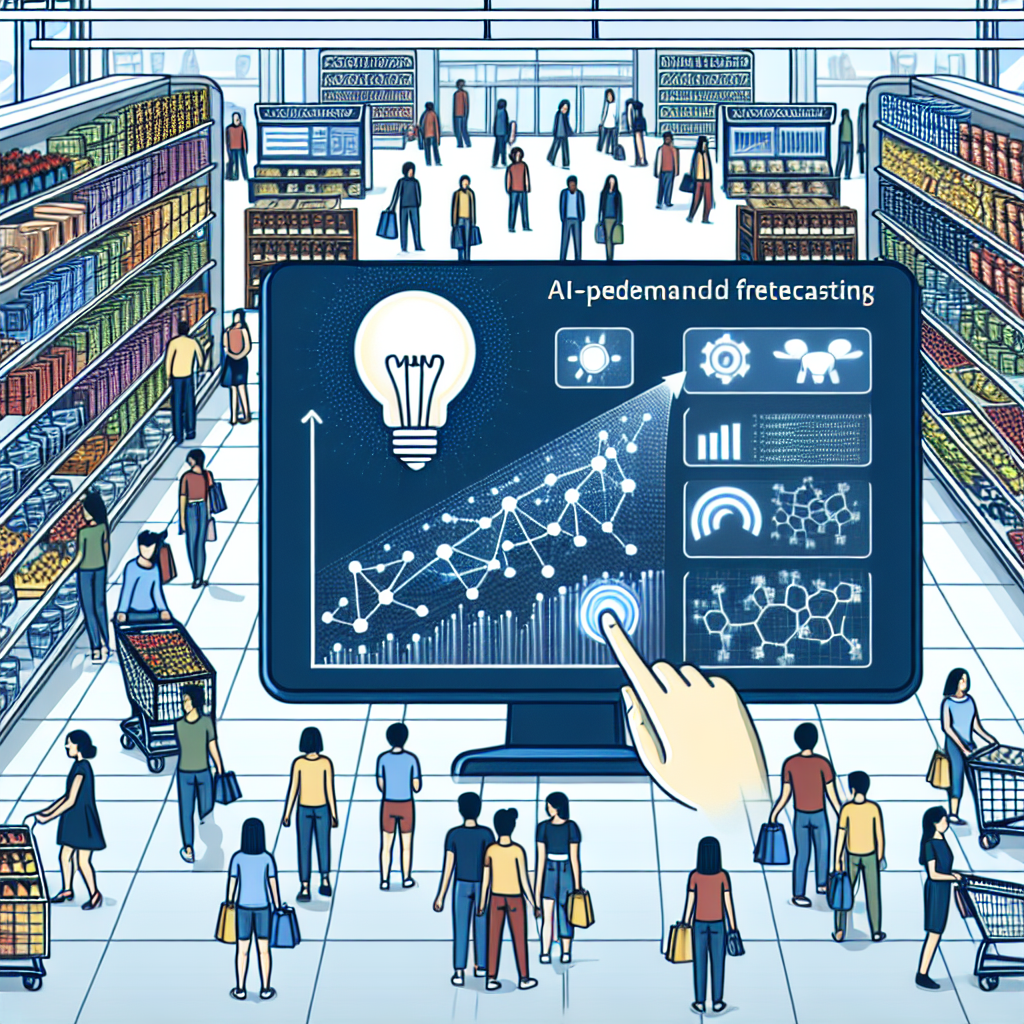In today’s fast-paced retail environment, staying ahead of the competition requires retailers to have a deep understanding of consumer demand. Accurate demand forecasting is crucial for retailers to optimize inventory levels, minimize stockouts, and maximize profitability. With the advent of artificial intelligence (AI) technology, retailers now have access to advanced tools that can help them forecast demand more accurately than ever before.
AI-powered demand forecasting uses machine learning algorithms to analyze historical sales data, market trends, and other relevant factors to predict future demand for products. By leveraging AI technology, retailers can improve the accuracy of their forecasts and make better decisions about inventory management, pricing, and promotions.
One of the key benefits of AI-powered demand forecasting is its ability to handle large volumes of data and identify complex patterns that may not be apparent to human analysts. By processing vast amounts of data quickly and efficiently, AI algorithms can provide more accurate forecasts and help retailers anticipate changes in consumer demand more effectively.
Another advantage of AI-powered demand forecasting is its ability to adapt and learn from new data in real-time. Traditional forecasting methods often rely on static models that may become outdated as market conditions change. AI algorithms, on the other hand, can continuously update and refine their forecasts based on new information, allowing retailers to make more informed decisions in a rapidly changing retail landscape.
Retailers who adopt AI-powered demand forecasting can benefit from increased efficiency, reduced costs, and improved customer satisfaction. By accurately predicting demand for products, retailers can optimize inventory levels, reduce overstocking and stockouts, and improve the overall customer experience. Additionally, AI technology can help retailers identify trends and patterns in consumer behavior, enabling them to tailor their marketing strategies and promotions to better meet customer needs.
Despite the many benefits of AI-powered demand forecasting, some retailers may have concerns about the implementation of this technology. Here are some frequently asked questions about AI-powered demand forecasting for retailers:
1. How does AI-powered demand forecasting work?
AI-powered demand forecasting uses machine learning algorithms to analyze historical sales data, market trends, and other relevant factors to predict future demand for products. By processing large volumes of data quickly and efficiently, AI algorithms can provide more accurate forecasts than traditional forecasting methods.
2. What are the benefits of AI-powered demand forecasting for retailers?
AI-powered demand forecasting can help retailers optimize inventory levels, reduce costs, and improve customer satisfaction. By accurately predicting demand for products, retailers can minimize stockouts, reduce overstocking, and improve the overall customer experience.
3. How accurate are AI-powered demand forecasts?
AI-powered demand forecasting can provide more accurate forecasts than traditional forecasting methods, thanks to its ability to analyze large volumes of data and identify complex patterns. However, the accuracy of AI-powered forecasts may vary depending on the quality of the data and the complexity of the market conditions.
4. How can retailers implement AI-powered demand forecasting?
Retailers can implement AI-powered demand forecasting by partnering with technology vendors that specialize in AI and machine learning solutions. These vendors can help retailers integrate AI algorithms into their existing systems and processes, enabling them to benefit from more accurate demand forecasts.
5. What are the challenges of implementing AI-powered demand forecasting?
Implementing AI-powered demand forecasting may require retailers to invest in new technology, data infrastructure, and training for their employees. Additionally, retailers may face challenges related to data quality, data privacy, and regulatory compliance when implementing AI-powered demand forecasting.
In conclusion, AI-powered demand forecasting offers retailers a powerful tool for optimizing inventory levels, reducing costs, and improving customer satisfaction. By leveraging AI technology to analyze vast amounts of data and predict future demand for products, retailers can make more informed decisions about inventory management, pricing, and promotions. While implementing AI-powered demand forecasting may present challenges, the potential benefits for retailers are significant, making it a valuable investment for those looking to stay competitive in today’s retail market.

